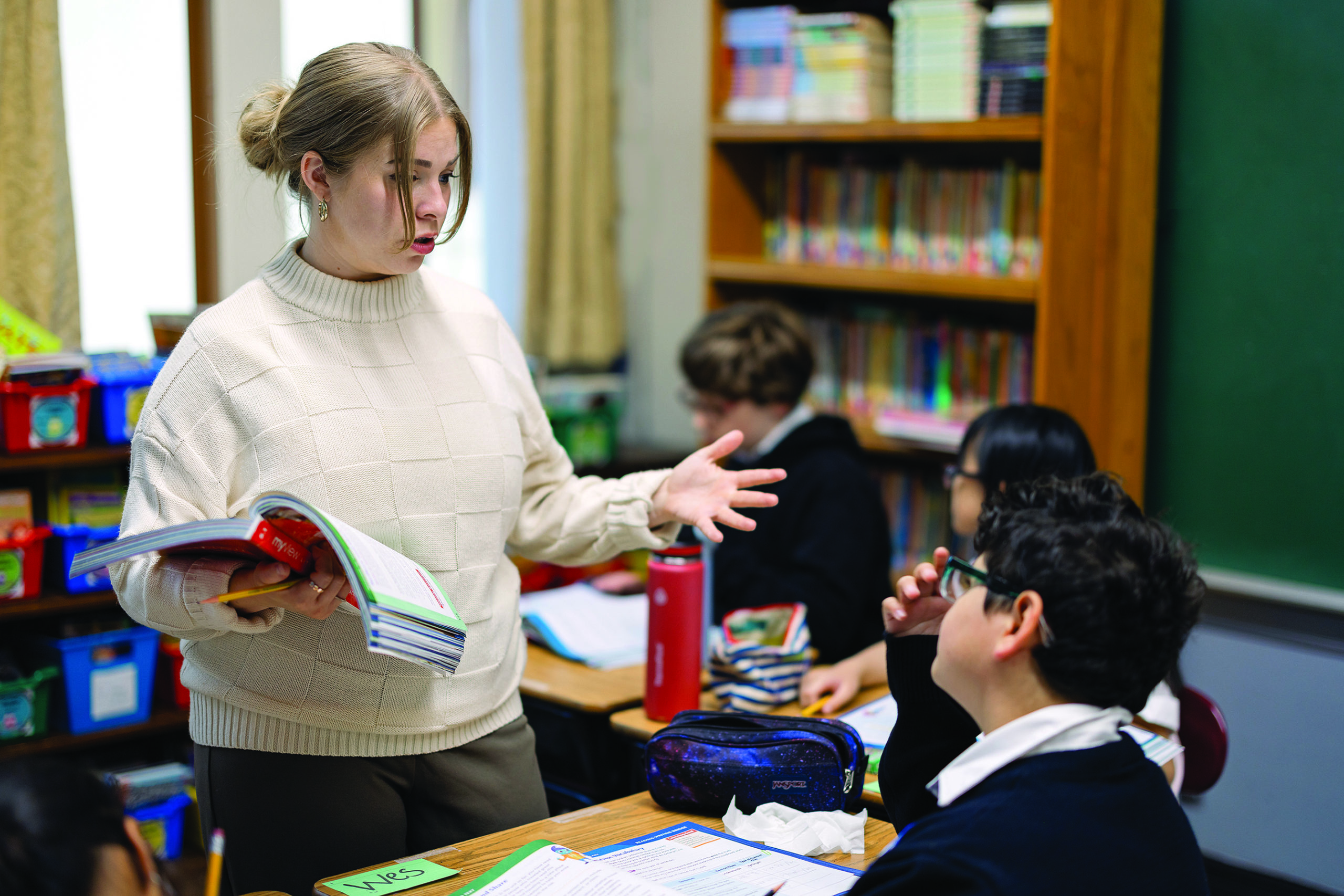
Dream Teams: New school advisory board model proving vital to Catholic school success
By Christina Gray
When the longtime principal of St. Pius School in Redwood City retired in 2019, Father Tom Martin, at that time the new parish pastor, decided to make a change in the existing school board model. For years the board had been comprised mostly of school parents.
“I reached out to some very successful and highly respected parishioners and asked if they would be willing to serve on the St. Pius School advisory board,” said Father Martin. Some members, he said, are current school parents. Some are not. That, he said, is by design.
Father Martin said his school advisory board includes a wider swath of the parish community. Members that have more expertise, capabilities and yes, time, than the pastor and principal do could help Catholic schools thrive, he said.
Enrollment is a challenge for St. Pius, like many other schools in the Bay Area.
“We’ve lost a lot of school families because they can’t afford to live here,” Father Martin said. Even the Redwood City Unified School District has closed several public schools for essentially the same reason — not enough new families with possible new students.
His advisory board does not have a policy role in the administration of the school.
“What a school advisory board does is take a panoramic view of what’s going on in the school, particularly in areas where there are challenges, and ask, how can we help?,” he said.
His “new” school advisory board includes a doctor, whose son graduated St. Pius; a finance professional, also a former school parent and a future school grandparent; the retired St. Pius School principal of 36 years; a global communications expert and current parent; entrepreneurial school parents (one a St. Pius alum); and the parents of three St. Pius students, the husband a public school administrator and the wife a juvenile justice probation officer.
Pam Lyons, superintendent of schools for the Archdiocese of San Francisco, said she has “always been a real advocate” for school advisory boards.
There are several types of school boards, according to Lyons, advisory boards and governance boards, being the two main ones. A governance board, operates as the name suggests. School leadership reports to the board. The board hires the school president or principal; it makes policy decisions etc.
“An advisory board can be made up of some parents, but ideally includes other members of the parish community with expertise in areas the school needs,” she said. The advisory board is, as the name implies, an advisory group, not a decision-making body, she said. There are certain areas of the school they can advise the principal and pastor about, such as finance, development, mission, enrollment management and facilities.
Typically, Catholic elementary schools have a principal and the parish pastor. “But there’s no way they can do everything,” said Lyons. “From my personal experience as an elementary principal I know how helpful a well-run advisory board can be.”
For the past two years, Lyons has offered to train the pastor, principal and advisory board members at elementary schools in the Archdiocese on how to run a successful school advisory board.
It’s been completely voluntary, she said, and many principals have taken up her offer after hearing her talk about the benefits at a principals’ meeting. But community involvement in school governance is also a new part of Catholic school accreditation.
“We are accredited by the Western Catholic Educational Association,” said Lyons. Last year the WCEA rewrote their accreditation protocol for the National Standards and Benchmarks for Effective Catholic Elementary and Secondary Schools. One of those standards is having a governance structure that involves the community, “in a very structured way.”
In a few rare cases, existing advisory boards were overeaching their authority, said Lyons. Clarifying the purpose of an advisory board, including what it does and doesn’t do (not involved in hiring or firing, discipline issues, curriculum, etc.), is part of her training.
“In most cases I encountered in our Archdiocese, advisory boards just needed some training to lay out their roles within the school community and revise existing statutes to reflect that role,” Lyons said.
School advisory board members are volunteers, but the difference is the long view.
Advisory boards are not like parent groups raising money for a field trip, said Lyons, “but they may organize a fundraising campaign for tuition assistance so the school is viable for the future.”
Christina Gray is the lead writer for Catholic San Francisco.

